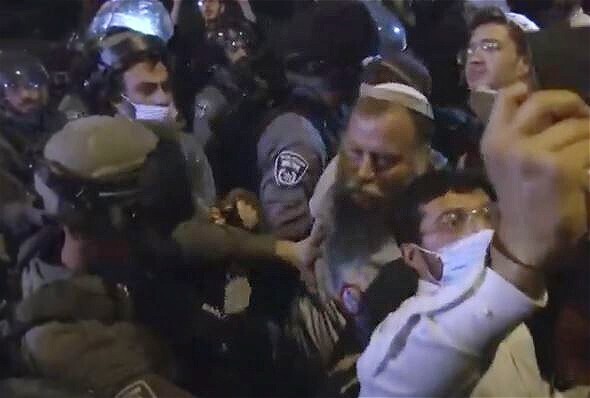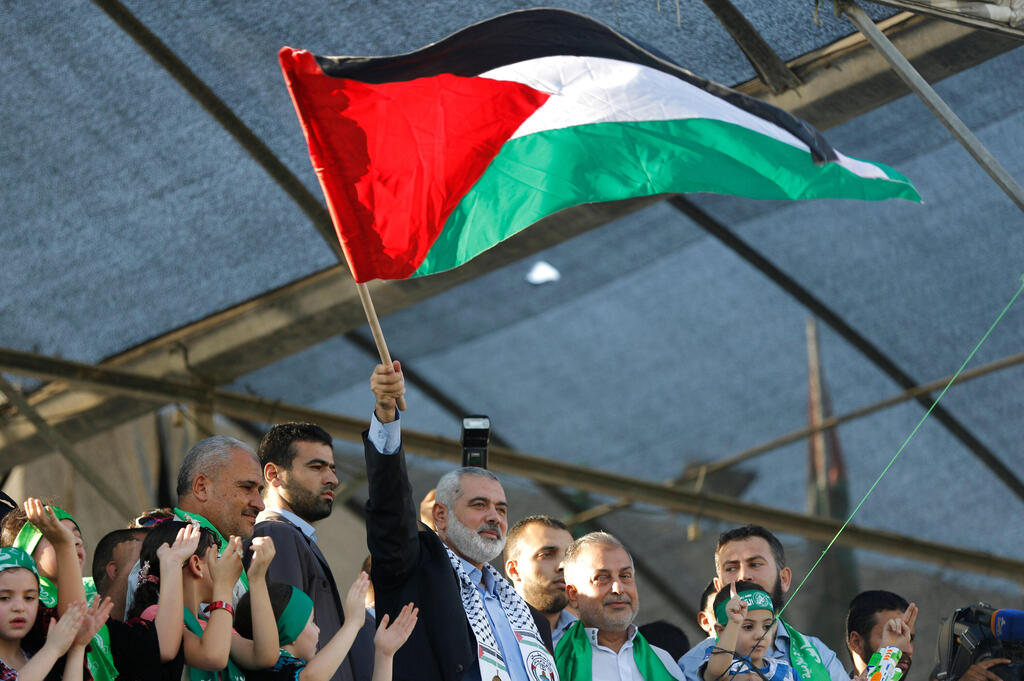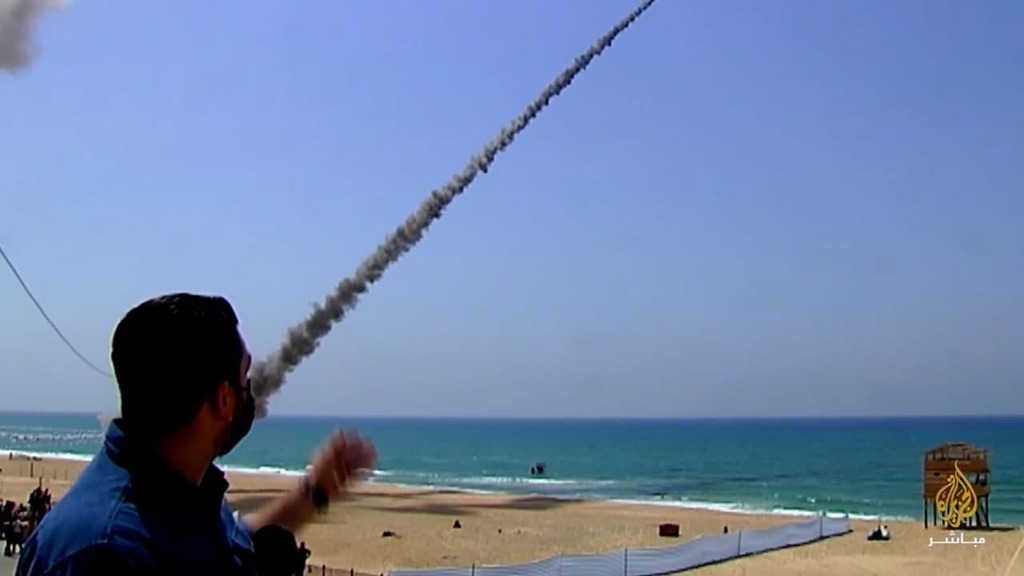In order to understand the recent clashes in Jerusalem and the renewed rocket fire from the Gaza Strip, one must examine these events in a wider context - critically dissecting not only the motives of the Palestinians, but also comparing Israel's true interests and its actions on the ground.
As the gap increases between Israel's interests and actions, it becomes clearer that it is the main party at fault.
5 View gallery


Border Police officers arrest a Palestinian protester during clashes at the Damascus Gate in Jerusalem
(Photo: AFP)
First, Jerusalem. Israel's expansion of its settlements in the Jerusalem area, such as as Ramot, Giv'at Ze'ev, Pisgat Ze'ev, Gilo and others, meets a municipal need.
On the other hand, Israel has no inherent interest in encouraging more Jews to live in East Jerusalem's crowded Arab neighborhoods.
When dozens of nationalist Jews insist on living in the heart of Silwan, an area home to tens of thousands of Palestinians only a few hundred meters from the Temple Mount, this causes unnecessary tension.
This is not an isolated incident, but an Israeli initiative that takes place in almost every Arab neighborhood in East Jerusalem, an action justly perceived by the Palestinians as a poke in the eye.
5 View gallery


Lehava leader Bentzi Gopstein scuffles with police as his extreme-right group marched in Jerusalem last week
(Photo: Screenshot)
When police allow racist organizations such as Lehava to inflame tempers in the area of the Damascus Gate during Ramadan, it should be no surprise to anyone that this leads to violence.
Israel's policy in the past few years has been (and logically so) to manage the Palestinian issue and not resolve it. The main interest is to prevent needless clashes.
In reality, the state is actively encouraging these flareups, starting with their total inaction to stop the extremist "price tag" attacks up to the recent violence in Jerusalem.
When Israel annexed East Jerusalem following the 1967 Six-Day War, it granted its Palestinian population residency, placing them in political limbo.
5 View gallery


Palestinians protesting outside Damascus Gate entrance to the Old City of Jerusalem last week
(Photo: Reuters)
When they ask who they can vote for, be it Knesset or Palestinian Legislative Council, Israel tells them neither. This creates an additional source of tension not only with the Palestinians but with the global community.
And then there is the Gaza Strip. It should be said first and foremost that the Palestinian enclave has been a de facto state since 2006, and as with all other sovereign entities, it is governed by self interest.
Israel has been two main concerns regarding Gaza – security and ecological.
For Gaza's rulers Hamas, the main interest is financial, since without bettering the Strip's infrastructure and economy the group could run the risk of falling from favor with the local population and be ousted.
5 View gallery


Hamas leader Ismail Haniyeh waves a Palestinian flag during a rally in Gaza City
(Photo: AFP)
This is where both Israel and Hamas intersect, with both wanting continued peace and development.
As the Gaza Strip becomes more developed, Hamas will have more to lose if it initiates any armed conflict with Israel.
This is the same consideration that has guided Hezbollah in Lebanon and led to a relatively calm northern frontier for the past 15 years.
Hamas, just like Hezbollah, is not just a terror group but chiefly a political entity operating with extreme and calculated care.
Israel's leaders could reach some sort of an agreement with the state of Gaza, but reject this, not because it contradicts the national interest, but out of other unjustifiable political motives.
5 View gallery


Hamas test fired rockets on the beach in Gaza on Saturday after a night of attacks on Israeli border communities
The facts on the ground are that since 2006, Israel's governments have been completely at peace with the existing reality of sporadic rocket fire every few months and a full military conflict every few years.
No one within the country's political establishment will state this outright, for they would be unable to explain it to the terrorized residents of the Gaza border communities, who are forced to exist from one flareup to the next.
While the motives that govern the Israeli-Palestinian conflict change, the bigger picture remains dangerously stagnant.

